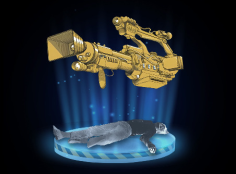
Science is often celebrated as a realm of objective truth and discovery. Yet, as Jeffrey Weinzweig’s Contraptions illustrates, the journey of innovation is rarely straightforward. The novel highlights how ego and skepticism can hinder scientific progress, forcing inventors to navigate not only technical challenges but also the human resistance to change.
The Role of Ego in Scientific Resistance
Ego plays a significant role in science and innovation, often manifesting as resistance to ideas that challenge the status quo. In Contraptions, this is evident when Derek Cannon and Ojo Jenachukwu present the Jennon QT7 to skeptical surgeons. Despite the device’s potential to prevent fatal surgical errors, the medical community’s initial response is dismissive, fueled by pride and a reluctance to acknowledge past mistakes.
Dr. Flint, the Chief of Surgery, embodies this resistance. His brusque demeanor and apparent discomfort with the QT7 underscore a broader issue in science: the fear of being proven fallible. For seasoned professionals like Flint, admitting the need for a new device may feel like an acknowledgment of personal or systemic shortcomings.
Skepticism as a Double-Edged Sword
While skepticism is a cornerstone of scientific rigor, it can also slow progress when applied excessively or defensively. In Contraptions, the surgeons’ doubts about the QT7 delay its adoption, potentially putting more patients at risk. This skepticism reflects a tension in science: the need to balance caution with openness to innovation.
Historically, groundbreaking ideas have faced similar resistance. When Ignaz Semmelweis introduced handwashing as a way to reduce infections, his peers dismissed his findings, clinging to established practices. It wasn’t until years later that his theories were vindicated, saving countless lives.
Balancing Ego and Progress
Weinzweig’s portrayal of Derek and Ojo navigating this resistance sheds light on a crucial aspect of scientific progress: persistence. Despite skepticism, they remain committed to their inventions, finding ways to demonstrate their value and overcome opposition. This mirrors the real-world challenges faced by innovators who must advocate for their ideas in the face of doubt.
Collaboration vs. Competition
Ego also fosters competition over collaboration in scientific fields. In Contraptions, the reluctance to embrace the QT7 reflects a broader cultural issue: the tendency to view science as a zero-sum game, where admitting another’s success feels like a personal failure. By highlighting these dynamics, the novel underscores the importance of collaboration in advancing knowledge.
Moving Forward
The interplay of ego and skepticism in science is both a barrier and a driver of progress. While resistance can slow the adoption of new ideas, it also challenges inventors to refine their work and present compelling evidence. Derek and Ojo’s journey in Contraptions exemplifies this dynamic, showing that persistence and innovation can ultimately prevail.
As we reflect on the lessons of Contraptions, it becomes clear that science, like any human endeavor, is shaped by emotion as much as reason. By recognizing and addressing the role of ego and skepticism, we can create a scientific culture that embraces progress without compromising its principles.
